My annual reading round-up of fiction and non-fiction, in my personal ranking, based on how much I enjoyed it, scope of impact on the life of the mind and imagination, and how likely I am to re-read and recommend it. Here’s the tail-end.
16. The Pisces by Melissa Broder (Hogarth, 2018)
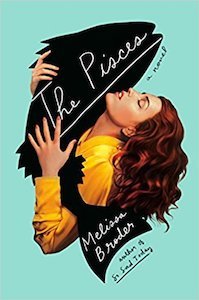
Broder is a fantastic, inventive poet, so I was looking forward to seeing what she would do with the novel form, language-wise. It is fantastically smutty, disgusting and really funny at times – all things I appreciated. At its core, this is a story about the despair of compulsion and sex addiction.
Provenance: American Book Center in Amsterdam
Fate: Passed on to a friend
17. Minor Robberies by Deb Olin Unferth and 18. Hard to Admit and Harder to Escape by Sarah Manguso (McSweeney’s, 2007)
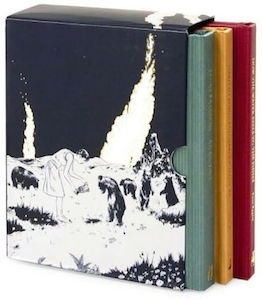
I’m pairing these two short collections of flash fiction together as they came in a lovely little boxed set published by McSweeney’s (together with a third book of flash fiction by Dave Eggers, and no, I didn’t read his!). The Manguso pieces captured small ignoble moments of childhood – lies, envy, mean deeds. The form leads her to a flat, matter-of-factness in the prose, which works some of the time. My favorites in the Olin Unferth collections were her longer stories, which made me think her style is more suited to longer forms.
Provenance: I won this box set at a poetry reading in Bushwick in 2010 on a second date with Dan.
Fate: Unsentimentally donated it to the Boekenzolder; Dan said it was OK, he prefers to be a minimalist.
19. The Godfather by Mario Puzo (1969)
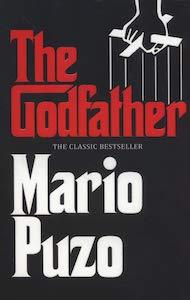
I picked this up during the Kavanaugh hearings and it was a good way to disappear from this world for a while, an absorbing distraction. I would recommend this book only to serious fans of the films. It proves the hypothesis that mediocre books make great films. It’s a pulpy, sometimes clumsily written book that was cut and shaped into elegant, visually rich cinema masterpiece. At its best it feels like novelized DVD extras of cut scenes. Like for example, Tom Hagen’s back story. At its worst there were what I can only guess were attempts to be modern and racy through multiple descriptions of Sonny’s giant schlong; gratuitous side stories of Johny Fontaine’s Hollywood debauchery; and a truly weird extended description of Sonny’s bereaved mistress’s vaginal reduction surgery, including medical terms (the implication being that her vagina was irreparably stretched out by Sonny’s giant schlong??). However, I will give Puzo due credit for putting his finger directly on what fascinates about the mob: the elaborate rituals and code of honor, the will of some men to achieve power and status despite being born to a marginalized class, coupled with the straight-up murderous violence and crime (and misogyny and racism).
Provenance: A gift from Dan to encourage me to read more fun and lighter stuff.
Fate: In the “to donate” pile
20. Art Theory: A Very Short Introduction by Cynthia Freeland (Oxford, 2001)
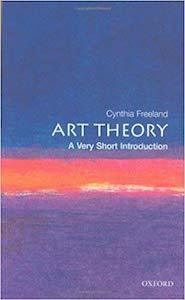
Admittedly, art theory is a really hard topic to distill into “a very short introduction,” but this book didn’t quite do it. The writing was labored despite attempts to simplify ideas, and I want to say it’s almost outdated given its focus on art controversies of the 80s and 90s. (It was published in 2001).
Provenance: Purchased at Van Stockum bookstore in Leiden (R.I.P.)
Fate: Donated to Boekenzolder
21. The Risen by Ron Rash (HarperCollins, 2016)
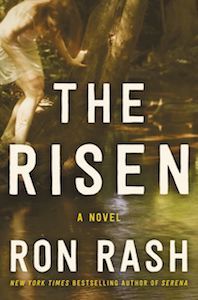
I have mixed feelings about saying harsh things about living writers, but this guy seems to be doing fine, while here I toil in obscurity. So: this book was terrible. I suspect some of his other novels are better – my mom recommended him because she lives in Western North Carolina and he captures life there. (That wasn’t the focus of this particular narrative.) Paper-thin characters, unearned pathos. An alcoholic protagonist – we know he’s an alcoholic because he refer to the fatal clinking of ice in a glass no less than three times in the course of the novel. A fucked-up hippie girl who initiates him into sex, drugs and alcohol and ends up a dead girl. That kind of thing.
Provenance: Lent by my mom, who got it from the library
Fate: Back to the library
Books I abandoned
Vernon Subutex by Virginie Despentes: A clever cross-section of contemporary Parisian society. I think I fell off because it’s rather bleak, and also includes a lot of French slang, so was slow-going as my French lexicon withered over the years as I mostly just use it for work. This is the first in a celebrated trilogy by Despentes and I hope to get back to it at some point.
Little Fires Everywhere Celeste Ng: I saw this book everywhere and only read good things about it, but I couldn’t get into it, I only made it about 80 pages in. The 90s references were a little too on-the-nose, the teenagers didn’t sound like teenagers, and there was a kind of emotional distance in the voice that didn’t convince me. I saw some readers on Goodreads compare this to young adult fiction in terms of its style – something to think about (what does this mean?), and maybe that’s what bothered me, the kind of psychological flattening at the expense of the narrative.
